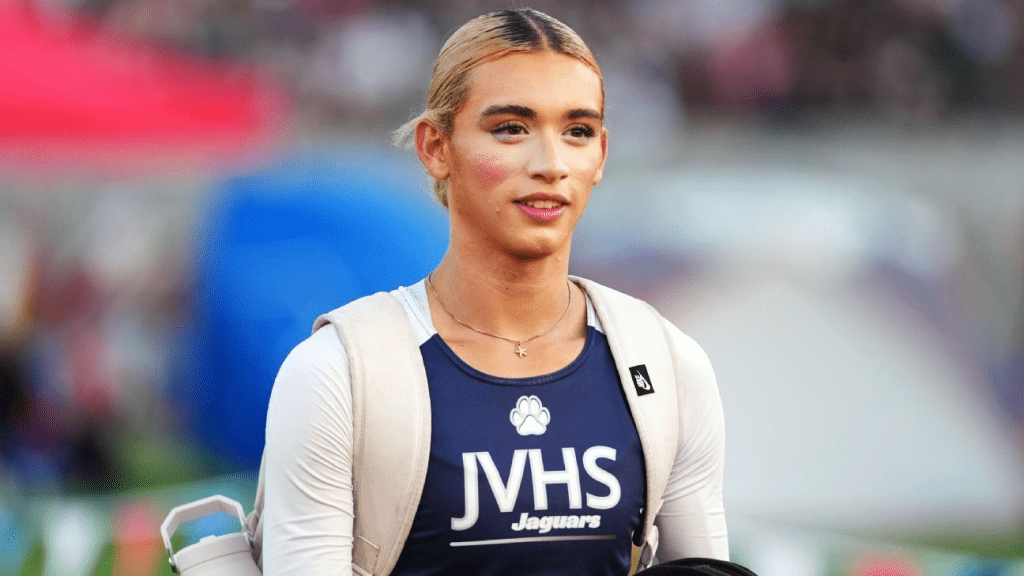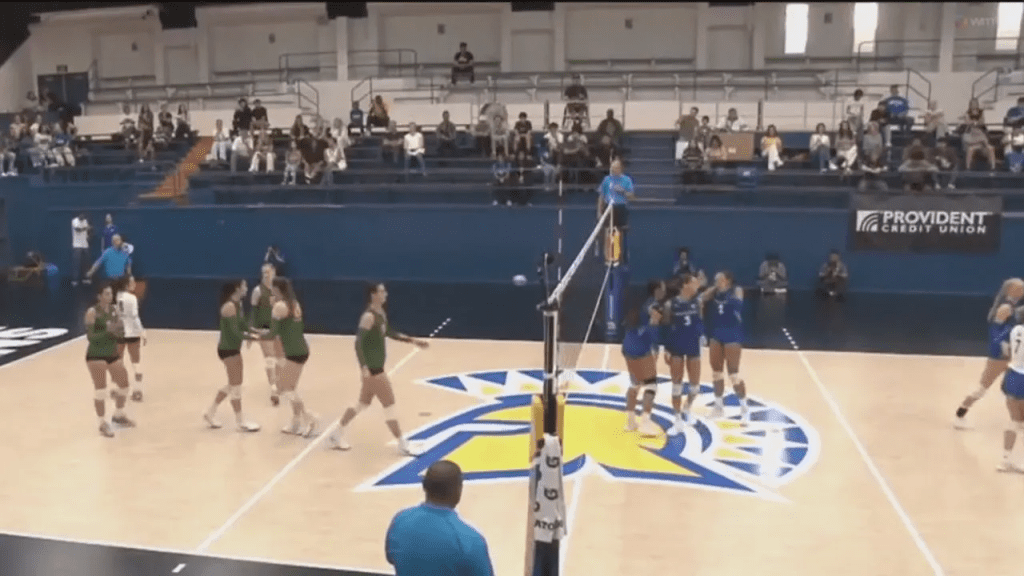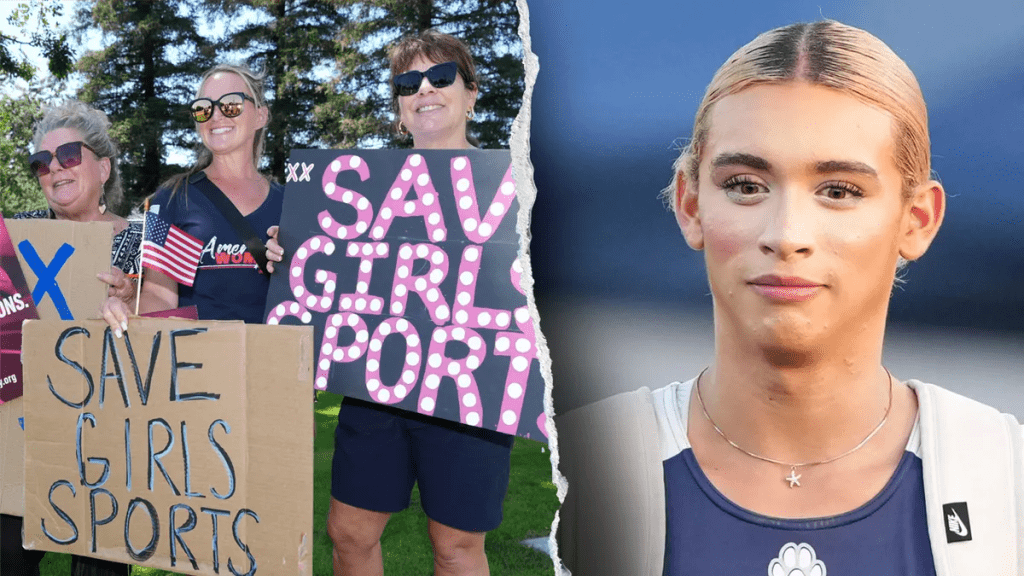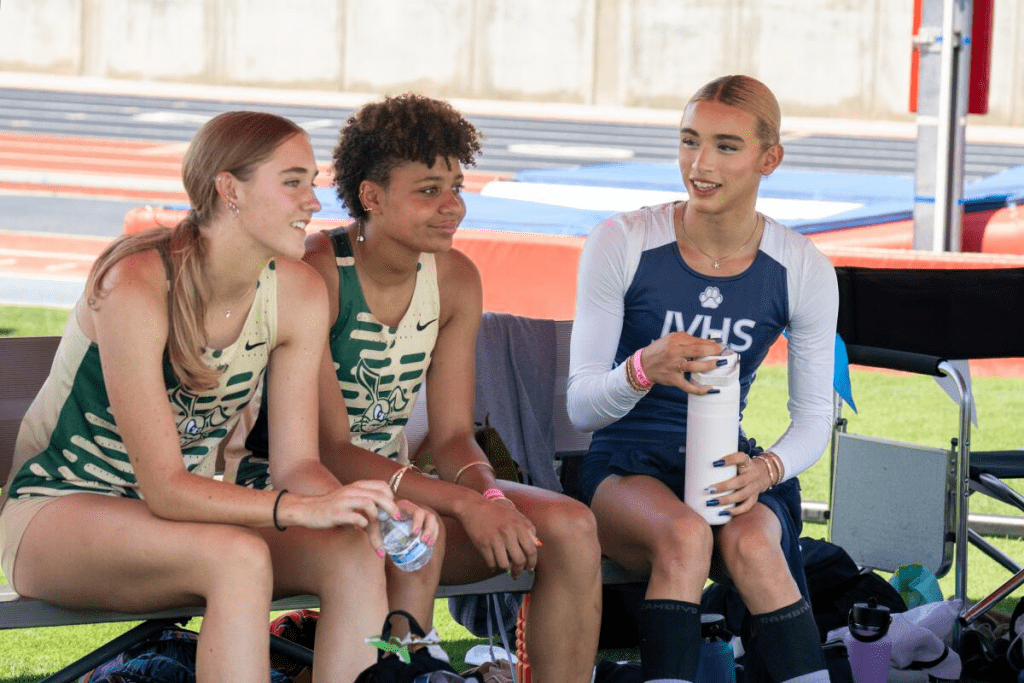Eighth School Refuses to Play Against Transgender Athlete as Lawsuit and Safety Concerns Rock California Volleyball
The story unfolding in Southern California high school volleyball has become one of the most closely watched examples of the national debate over fairness, safety, and inclusion in sports. At the center of the controversy is Jurupa Valley High School’s girls volleyball team, which features transgender athlete AB Hernandez. Over the past weeks, Patriot High School became the eighth school to refuse to take the court against Jurupa Valley, citing concerns about fairness and the physical dynamics of competition. The repeated forfeits have left the girls at Jurupa Valley struggling to even find opponents to play, underscoring how deeply divided schools and communities are over this issue.

For many parents, coaches, and athletes, the main concern is the clear physical difference that comes from male puberty. Scientific research, such as a 2021 study published by Harper et al., confirms that biological males retain significant advantages in strength and speed, even after hormone treatments. Supporters of the Patriot High boycott say this creates an uneven playing field, where young women who have trained for years feel they cannot compete on fair terms. Spectators at recent matches have openly expressed frustration, with reports describing the advantage as “so clear and obvious” that even neutral fans were visibly upset.

The matter escalated further when a lawsuit was filed by three current and former volleyball players at Jurupa Valley. The complaint alleges that Hernandez engaged in unwanted physical contact during practices and games, including placing hands on teammates inappropriately. These are legal claims that remain allegations at this stage, but they have intensified the already heated debate. The suit adds another layer to the growing tension, because it no longer centers only on fairness in competition, but also on questions of athlete safety and boundaries within teams.
This clash is not happening in a vacuum. It sits at the intersection of changing laws, shifting social expectations, and a growing divide in public opinion. In other states, courts have issued rulings that illustrate just how complicated these cases can be. A recent Nevada decision rejected an injunction against a transgender athlete, pointing to anti-discrimination protections as a reason to allow participation. These legal outcomes show that the issue is far from settled, and the balance between inclusion and fairness continues to play out differently across the country.

Beyond the courtrooms and gymnasiums, there are human stories unfolding. According to the CDC, transgender youth face higher risks of depression, bullying, and isolation. Advocates for inclusion argue that banning transgender athletes only worsens these problems and denies them opportunities to belong. On the other hand, parents of female athletes say their daughters’ futures are being sacrificed in the name of policy, and that their years of training could be overshadowed by what they see as unfair competition. Both perspectives highlight the human cost at stake, whether it is a transgender teen trying to find acceptance or a female athlete who feels her chance at fair play is slipping away.

As this case continues to develop, the spotlight remains on Jurupa Valley and its surrounding schools. Every forfeit, every lawsuit filing, and every court ruling adds to a story that is shaping not only the future of high school volleyball in California but also the national conversation on sports, gender, and fairness. It is a reminder that these debates are not just about rules written in policy documents but about the lives of real young people who step onto the court each day with dreams, struggles, and hopes of their own.


